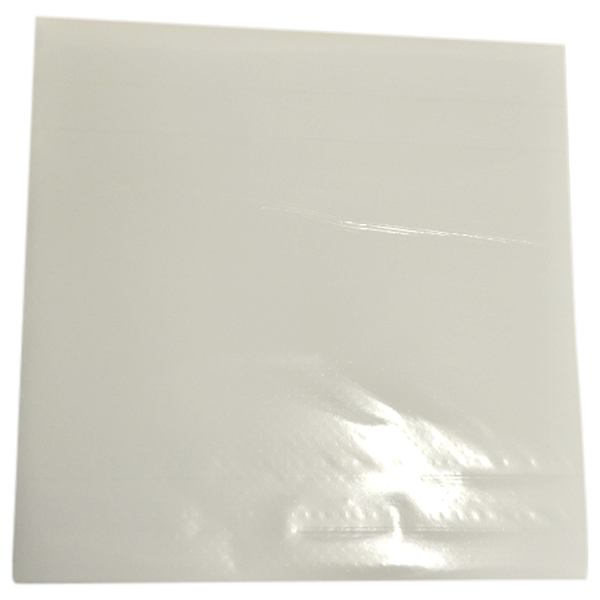Each sheet is 240mm x 240mm
Pack sizes 10, 25, 50, 100
This is the same cheese wrap that is used by professional cheesemakers. It is a general purpose wrap that can be used for white mould, blue mould, goat cheese, washed rind, lactic acid cheeses, ashed cheeses,
Always place the matt (not the gloss) side against the cheese.
General wrapping information
- You have spent a lot of time making and now it is time to start aging/maturing your cheese. There are several home style wrap options available that you can use but these may not work as well as a micro perforated cheese wrap.
- It is a two-layer cheese wrap; the inner layer that contacts the cheese is paraffin coated parchment paper that protects the delicate surface with the white, blue mould or wash rind to maintain correct moisture and stop sticking to the cheese. It also allows the cheese to continue to ripen under the correct moisture conditions.
- The outer layer is micro perforated polypropylene that allows the cheese to ‘breathe’ by providing fresh air for the surface flora, moulds or washed rind bacteria to stay alive in exchange for allowing the unwanted gasses that are generated during the ripening to escape while also preventing the cheese from drying out.
- This wrap may come rolled or folded for ease of postage.
- Wrapping should use a pleating process, tightly folding the pleats as you work your way around the cheese.
Helpful wrapping and storage hints
- All cheeses should be completely dry before wrapping. Wrapped wet cheese surfaces will kill the white mould, Geotrichum, Brevi bacteria, and break down the rind surface to make the cheese very smelly (in a non-pleasant way). Pat drying cheese with a paper towel in less than ideal due to foreign contamination.
- Carefully and slowly remove lids off your ripening containers, so that any condensation does not fall onto the cheese
- Condensation: be careful moving cheese from different temperatures as a cold fridge into a warmer room may cause condensation
- Make sure cheese are not still losing whey. This may happen in colder months where a cold overnight temperature may slow start culture acidification.
- Storing wrapped cheese in a fridge may cause drying, even if the cheese is well wrapped. Domestic fridges, including many wine fridges are evaporative, so they have the potential to get dry air under and through the wrap into the cheese. So over time your cheese may dry out. A dry camembert may not mature sufficiently.
- The solution is to store wrapped cheeses in a tightly dry sealed container. The container must also be free of any moisture.

